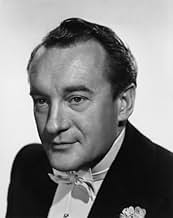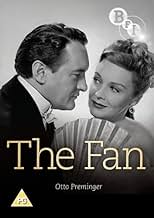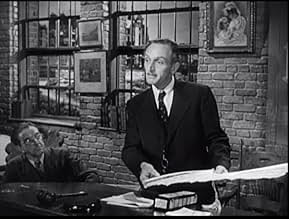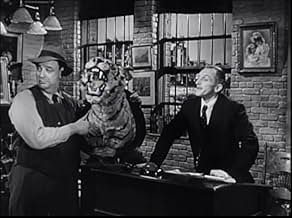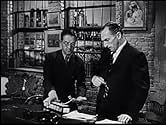Adventuress Mrs. Erlynne hopes to succeed in London's high society and seeks Lord Windermere's help. His wife Margaret is not amused but is herself courted by Lord Darlington and forgets her... Read allAdventuress Mrs. Erlynne hopes to succeed in London's high society and seeks Lord Windermere's help. His wife Margaret is not amused but is herself courted by Lord Darlington and forgets her fan in his home after a clandestine meeting.Adventuress Mrs. Erlynne hopes to succeed in London's high society and seeks Lord Windermere's help. His wife Margaret is not amused but is herself courted by Lord Darlington and forgets her fan in his home after a clandestine meeting.
- Alphonse - Philippe's Assistant
- (uncredited)
- Hoskins
- (uncredited)
- Simpson the Tailor
- (uncredited)
- American Girl
- (uncredited)
- The Jeweler
- (uncredited)
- Maid
- (uncredited)
- Messenger
- (uncredited)
- Philippe
- (uncredited)
Featured reviews
Despite the loss of Wilde's words, including the famous epigrams, Lubitsch's film retains the spirit of the playwright's wit visually. It even improves upon it, as the play is rather uneven in its holding up Victorian-age high society for ridicule while ultimately becoming itself rather VIctorian in its moralistic resolution of motherhood. A similar fault befalls this 1949 reworking. Its added present-day framing narrative, where Mrs. Erlynne and Lord Darlington, rather literally, take a walk down memory lane places Wilde's story as a quaint relic, but one filled with nostalgia, of better times before the country was ravished by war. This takes the satirical bite out of the comedy of manners, which, otherwise, the film follows rather faithfully at first--before its resolution falters even more than the original play into melodramatics. The film's latter acts are full of characters either yelling at each other or acting self-righteously, while the musical score is turned up to bombastic levels. Compare this to how Lubitsch's film managed to retain its light tone even while managing a more poignant scene of self-sacrifice.
Like the 1925 version, as well as the 1916 one before it, "The Fan" "opens up" the play, which helps prevent it from appearing stagy, even though it looks like a B-picture in comparison to the 1945 prestige production "The Picture of Dorian Gray" or to Lubitsch's version, with the director's characteristic insistence upon grand sets, including absurdly gigantic doors. I do like one shot in "The Fan," in particular, though, which happens when the narration changes to Lord Darlington's memory: the camera moves from the present to the past as seen through a window. Besides the flashback structure, the remembered past begins before where the play started (as do the other film versions), and there are other added scenes of Mrs. Erlynne's interactions with the male characters and a fencing match, which serves to stage her scandalous effect on society. Much of this is very similar to the 1925 film despite being slightly altered. The fencing match, for instance, replaces a similarly-purposed scene at the horse track in the 1925 version, which itself was a bit of a reworking of a dog-show scene in the 1916 one. I'm certainly not opposed to "The Fan" adapting earlier filmed versions as well as the play, but I don't think it does a very good job of it. The horse-track scene is impressively constructed in Lubitsch's film, with its series of looks and mocked gossiping underpinning a narrative based on dramatic irony and misconceptions. The fencing scene here, by contrast, is quite dull.
The acting is OK, I suppose, but the problem is that Wilde's characters were never much developed; originally, they come off as mouthpieces for the author's aphorisms, as variously stated by several different persons. Besides eliminating Wilde's words, the 1925 version helps to alleviate this with Irene Rich's Mrs. Erlynne, who follows in the tradition of the cinematic vamp, or flapper, type, as the play was updated to the then-modern day. Not so here. Even George Sanders, who is my favorite screen version of Lord Henry from Wilde's novel, cannot save Lord Darlington, who always seems to me to be quite a bore of a cad. Martina Hunt is rather surprisingly good in the more minor role of the Duchess, though, as the film gets some amusement out of her relationship with her obedient daughter, Agatha.
Simply entitled The Fan Oscar Wilde's plot is told in flashback by two of the surviving principals of the story. Madeleine Carroll as the adventuress Mrs. Erlynne and the cynical Lord Darlington played by the always cynical George Sanders. Both have survived into the post World War II era in their dotage and it takes a while for Sanders to realize who is this old woman pursuing him.
In her younger days Mrs. Erlynne was quite the adventuress looking to break into London society by whatever means. Through a little clever maneuvering she's got Richard Greene as Lord Windermere running interference for her in her object to get to Hugh Dempster and his title. Of course Jeanne Crain thinks the man she thought was as in love with her as she with him is now two timing him. All their little manoeuvrings are recorded with appropriate comments by Sanders who is Wilde himself.
But Carroll has her reasons for saving Crain from making a fool of herself at the cost of Carroll's own plans for advancement.
Watching this I thought Gene Tierney might have carried it off and she was the original choice for the title role. The one who could have done it best was Vivien Leigh. I can't believe Darryl Zanuck didn't try to get her back in America for the role.
Greene is properly dashing as the Victorian Lord, but Sanders was a man born to serve up Oscar Wilde's lines with relish. Sad that the lead was weak or this might have been a classic film.
The film begins at the present time. A very elderly lady is attending an auction and she sees something of hers, a very expensive fan, being sold without her permission. The auctioneer withdraws the item and tells her to get some proof it is hers...which is a problem as she's been living abroad and most everyone who knew her in London is dead! Then, she remembers that Lord Darlington (George Sanders) knew her and will be able to vouch for her and the fan. The rest of the story is a flashback to many years ago...and the story of how she got the fan takes a VERY long time!
The reason I enjoyed this film is its final third. The first two thirds is just okay...but all the confusion and unanswered questions are taken care of in the final portion. And, because of that, it's well worth seeing...especially with some lovely acting and a good, though longwinded, script.
Having played Lord Henry Wooton (Oscar's alter ego in "The Picture of Dorian Gray"(1946) George Sanders again assumes this mantle of giving Oscar's aphorisms another tryout playing Lord Darlington.Unless American actors are skilled at British accents (e.g.Renee Zellweger, Gwyneth Paltrow etc.), I find they grate on me as does Jeanne Crain as Lady W.Seeing Richard Greene (Robin Hood from the famous UK 1950s TV series) playing Lord W.gave me a mild shock but Martita Hunt as the Duchess of Berwick was a pleasant surprise.
I don't like Hollywood versions of classic plays as it tends to add a superficial gloss on original British productions and add lines which are not consonant with the original text.I nevertheless enjoyed this film shown in its entirety on www.youtube.com and awarded it 6/10 as I was thrilled to see Madeleine Carroll playing Mrs Erlynne who I have admired since she played the female lead in Hitchcock's "The 39 Steps" (1935).
At an auction selling objects from bombed buildings Lady Erlynne (Madeline Carroll) attempts to reclaim a fan given her decades earlier. The auctioneer is reluctant to part with it on her say so unless she can find a witness. She goes and looks up "cad from the past" Lord Darlington (George Sanders) to vouch for her and after an initial re-buff the two recall the bell époque together and how his deviousness almost ended a marriage while her sacrifice saved it.
Preminger seamlessly injects the war as a catalyst to springboard the play as well as add a sly touch that reveals itself comically at the end. With his ability to speak film language as well as anyone The Fan flows with long takes and fine performances by the principals Carroll, Jean Crain, Richard Greene and George Sanders who seemed born to play Wilde characters.
The Fan is one well crafted work that Preminger elevates by eschewing the easy task of filming a classic stage satire and adding a stark but unobtrusive contemporary sub plot that not only advances the storyline but in the true spirit of Wilde pays homage to his timeless words.
Did you know
- TriviaBefore Jeanne Crain replaced her, Gene Tierney was set to star in the movie.
- Quotes
Mrs. Erlynne: How easy life is for men! A freshly pressed suit - and they are young again.
- ConnectionsVersion of Lady Windermere's Fan (1916)
- How long is The Fan?Powered by Alexa
Details
- Runtime
- 1h 18m(78 min)
- Color
- Aspect ratio
- 1.37 : 1

